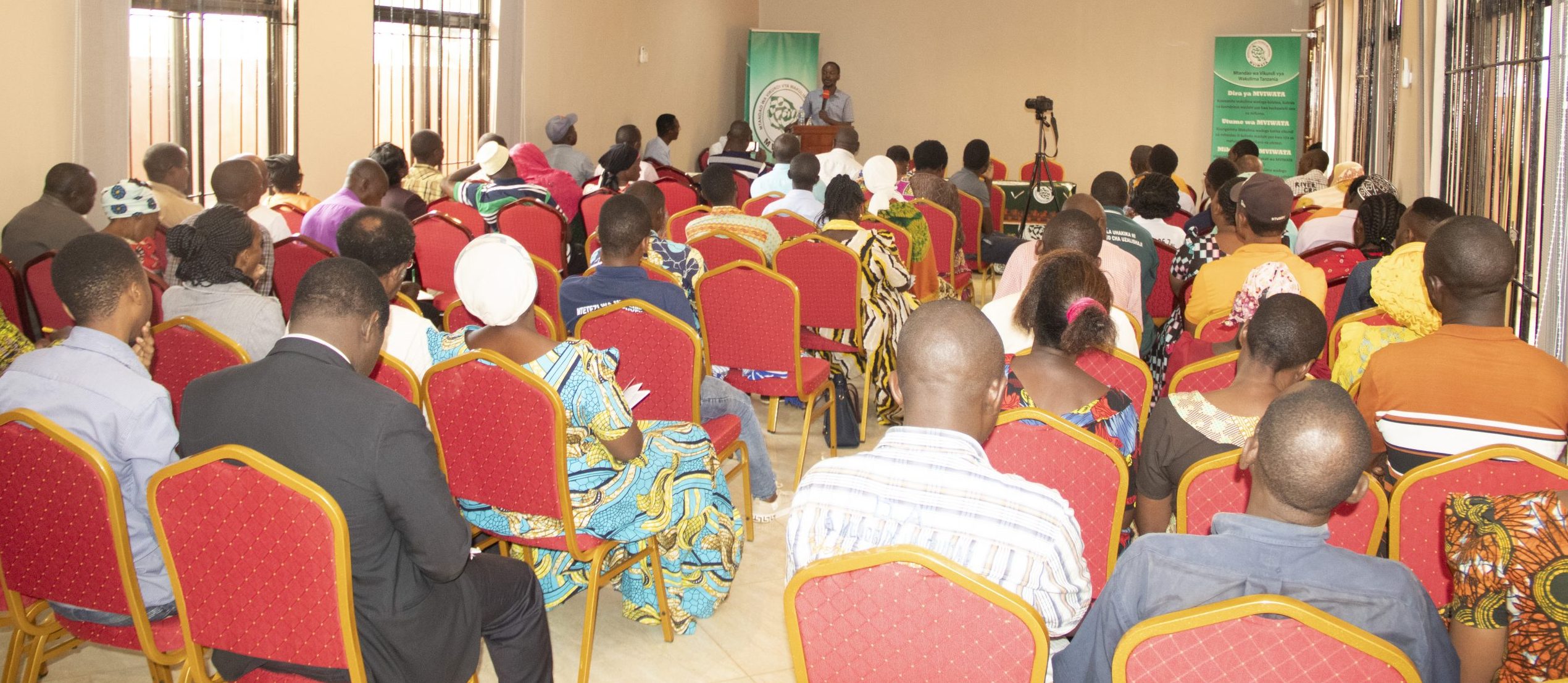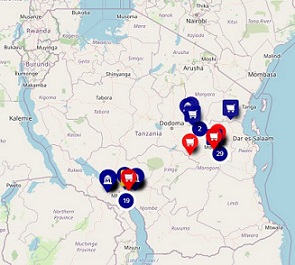Mtandao wa Vikundi vya Wakulima Tanzania – MVIWATA commemorated Nyerere Day by conducting a one day dialogue at MVIWATA Head Office in Morogoro Municipal. Smallholder farmers and members of MVIWATA from 9 regions namely Mbeya, Tanga, Mtwara, Njombe, Iringa, Dodoma, Morogoro, Manyara, and Pwani gathered to exchange and discuss Mwalimu Nyerere’s life, 21 years since he left on 14 October 1999.
Sabatho Nyamsenda a lecturer from University of Dar es salaam and Dr. Joachim A Mwami from Jordan University College were guest speakers, the commemoration also had representatives from Tanzania Socialist Forum (TASOFO) of whom Ms, Christina Mfanga a General Secretary of the forum and Ms, Faria a member of TASOFO attended.
The presentations from guest speakers were literally “lessons from Arusha Declaration and its relevance to Tanzanians today” by Mwl, Sabatho Nyamsenda and Rural Development as a major means of building a national economy by Dr. Joachim A Mwami.
While giving introductory remarks of the commemoration, MIWATA Executive Director Mr, Stephen Ruvuga said it is hard to believe that 21 years has passed ever since Mwalimu and father of the nation left. He added that it is MVIWATA’s norm to commemorate iconic leaders of our nation pointing the recent MVIWATA’s commemoration of late Prime Minister of Tanzania Edward M. Sokoine who passed away in 1984.
MVIWATA Chairperson Mr, Abdul Gea while opening the commemoration said it is an honour for the largest farmers’ organisation in Tanzania (MVIWATA) to remember and dialogue on the life of our father of the nation Mwl, Julius K. Nyerere who worked tirelessly to fight for the independence of our nation, the rights of workers and smallholder producers and unite the citizens beyond the lines of tribe, religion and race.
Mr, Sabatho started his presentation by reminding participants on the defiant history of Mwl, Nyerere during his childhood, and his attitude against domestic exploitative systems. Mr, Sabatho said that Nyerere’s chance to go to school was attributed by his successive wins on local games popularly known us (bao). “Mwl, Nyerere was not only a blessings to we Tanzanians but to the whole world as well”, said Mr, Sabatho.
He further added that one of the greatest gifts Mwl, Nyerere left us with was The Arusha Declaration of 1967. The Arusha declaration is the most radical policy ever produced that aimed to protect the interests of the working class in Tanzania said Mr Sabatho. He said the Arusha declaration was the result of continuous complaints by citizens who claimed that the fruits of independence that Mwl, Nyerere promised during the struggle for independence was not evident and had no manifestation to the working class’s day to day life except for the few government officials. “It is for these grounds that Mwl, Nyerere drafted the Arusha Declaration”.
“We have been oppressed a great deal, we have been exploited a great deal and we have been disregarded a great deal. It is our weakness that has led to our being oppressed, exploited and disregarded. Now we want a revolution – a revolution which brings an end to our weakness, so that we are never again exploited, oppressed, or humiliated” quoted Mr, Sabatho a section of policy of self-reliance of the Arusha Declaration.
Mr, Sabatho added that there has been several declarations developed since the Arusha declaration of 1967, but all of them says nothing about the fundamental rights of the working class of which are absence of exploitation, ownership of the major means of production and exchange are under the control of the peasants and workers and lastly the existence of democracy.
The next presentation was made by Dr. Joachim A Mwami, who spoke on the role of rural development as a major means of building a national economy. Dr Mwami emphasized on the role of the government to provide social services recalling back during his old days when he was a student at the University of Dar es salaam where the government provided them with all basic needs without student’s contributions as it is today.
Dr. Mwami also reminded the audience to denounce the barbaric and imperialistic moves and actions as they manifest themselves in our day to day lives in all spheres and walks of life. The audience shared their experiences and realities which also revealed the need for the government to formulate policies, laws and regulation that addresses the needs and wants of the people.
In giving his conclusive remarks, MVIWATA chairperson Mr Abdul Gea said MVIWATA will continue holding such commemorations given its importance to the current generations who seems to be less informed of the philosophy and principles of the initiatives of the late Mwl Nyerere and other iconic leaders.







